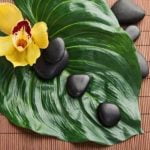Are you wondering how to feng shui your bedroom? Feng Shui is an ancient Chinese practice that focuses on creating harmony and balance in living spaces, including the bedroom. By incorporating Feng Shui principles into bedroom design, you can enhance the energy flow and create a peaceful and restful environment. In this article, we will explore the different aspects of Feng Shui and how you can apply them to your bedroom for optimal relaxation and rejuvenation.
Feng Shui is more than just a decorating style-it’s a philosophy that takes into account the flow of energy, or chi, in a space. By understanding the principles of Feng Shui and how they relate to bedroom design, you can create a space that promotes restful sleep, harmonious relationships, and overall well-being.
From decluttering and choosing the right colors to positioning furniture and incorporating elemental balance, there are many aspects to consider when applying Feng Shui to your bedroom.
One key concept in Feng Shui is the Bagua Map, which is used to determine the energetic flow within a space. Understanding how this map relates to your bedroom can help you identify areas for improvement and enhance the overall energy in the room.
In addition to utilizing the Bagua Map, incorporating Yin and Yang energies as well as the five elements (wood, fire, earth, metal, and water) are essential components of Feng Shui design for promoting balance and harmony in your bedroom.
Understanding the Bagua Map
What Is the Bagua Map?
The Bagua Map is a tool used in Feng Shui to map out different areas of a space and determine the energy flow within it. It consists of nine areas, each representing different aspects of life such as wealth, health, love, career, and more. By using the Bagua Map, individuals can identify which areas of their bedroom need attention to enhance the flow of positive energy and create harmony.
Using the Bagua Map in the Bedroom
When applying Feng Shui principles to a bedroom, it’s essential to use the Bagua Map to understand how energy moves within the space. For example, if the love and relationship area of the bedroom falls in a cluttered or stagnant corner, it may affect one’s romantic life. Similarly, if the wealth area is neglected or filled with items that don’t align with abundance, it can impact financial well-being.
Applying Solutions Based on Bagua Map Analysis
Once an individual has identified the different areas of their bedroom using the Bagua Map, they can then take specific actions to improve energy flow. This might include decluttering and enhancing certain areas with specific colors or elements based on Feng Shui principles. Additionally, by positioning furniture and decor strategically according to the Bagua Map, individuals can create a balanced and harmonious environment that supports their overall well-being.
By understanding how to use the Bagua Map effectively in their bedroom design, individuals can optimize energy flow and create a peaceful sanctuary that promotes restful sleep and positive energy. The Bagua Map serves as a practical tool for applying Feng Shui principles in a personalized way to enhance both physical and emotional well-being in the bedroom environment.
Clearing Clutter
Clutter in the bedroom can disrupt the flow of energy and create a chaotic environment, which can impact sleep quality and overall well-being. By following Feng Shui principles, you can declutter your bedroom to create a harmonious and peaceful space that promotes relaxation and rejuvenation. Here are some tips on how to declutter your bedroom according to Feng Shui:
1. Remove unnecessary items: Take a look around your bedroom and identify any items that are not essential or do not contribute to the overall tranquility of the space. Consider donating or discarding these items to create a sense of spaciousness.
2. Organize storage spaces: Ensure that your closets, drawers, and other storage areas are well-organized to prevent clutter from accumulating. Use organizers and storage solutions to keep belongings neatly tucked away.
3. Clear under the bed: In Feng Shui, it is important to have clear energy flow underneath the bed. Avoid storing items under the bed as this can disrupt the flow of chi (energy) in the room.
4. Keep surfaces clear: Avoid overcrowding bedside tables, dressers, and other furniture with too many decorative items or personal belongings. Clear surfaces will help maintain a calming and serene atmosphere in the bedroom.
By applying these decluttering tips based on Feng Shui principles, you can transform your bedroom into a tranquil retreat that supports restful sleep and promotes overall well-being while also enhancing positive energy flow throughout the space.
Choosing the Right Colors
In Feng Shui, colors play a vital role in creating harmony and balance in a space. When it comes to the bedroom, selecting the right colors can have a significant impact on the energy flow and overall ambiance of the room. The goal is to create a soothing and restful environment that promotes relaxation and rejuvenation. Here are some tips for choosing the best colors for your bedroom based on Feng Shui principles.
1. Soft and calming hues: According to Feng Shui principles, soft and calming colors are ideal for the bedroom as they help create a tranquil atmosphere. Colors like light blue, pale green, lavender, and soft gray are believed to promote relaxation and restful sleep.
2. Avoiding stimulating colors: It’s important to steer clear of vibrant and stimulating colors in the bedroom, as they can disrupt the peaceful energy needed for rest and relaxation. Bright reds, intense oranges, and bold yellows are considered too energetic for this space according to Feng Shui guidelines.
Positioning the Bed
The placement of the bed is a crucial aspect of Feng Shui in the bedroom. It is believed that the position of the bed can impact one’s energy, quality of sleep, and overall well-being. According to Feng Shui principles, having a good flow of energy around the bed is essential for a restful and rejuvenating sleep.
One important tip for positioning the bed in accordance with Feng Shui is to place it in a commanding position. This means that when lying in bed, you should be able to see the door without being directly in line with it. This positioning allows for a sense of security and stability while resting, as well as optimal energy flow throughout the room.
Another key consideration is to avoid placing the bed under a window or exposed beams, as this could create a sense of vulnerability and disrupt the flow of energy. Additionally, it is advisable to have equal space on both sides of the bed and to avoid placing it directly against a wall. This promotes balance and allows energy to circulate freely around the bed.
Moreover, incorporating a solid headboard behind the bed is recommended in Feng Shui practice, as it provides support and symbolizes stability. Avoiding clutter or storage under the bed is also important to maintain clear energy flow. Following these guidelines for positioning your bed according to Feng Shui principles can help create an environment conducive to restful sleep and overall well-being.
| Feng Shui Tip | Description |
|---|---|
| Commanding Position | Place the bed so that you can see the door from it without being in direct line with it |
| Avoid Window or Exposed Beams | Avoid placing the bed under a window or exposed beams as it may disrupt energy flow |
| Use Solid Headboard | Incorporate a solid headboard behind the bed for stability and support |
Incorporating Yin and Yang
Here are some tips on how to incorporate Yin and Yang principles into your bedroom design:
- Make use of both light and dark colors: Balance the Yin (passive, dark) and Yang (active, light) energies by incorporating both light and dark colors in your bedroom decor. For example, you can pair a soft, pastel wall color with bold, vibrant accent pillows or artwork.
- Mix soft textures with hard surfaces: To create a harmonious blend of Yin and Yang energies, mix soft textures like plush bedding or rugs with harder surfaces such as wooden furniture or metal accents. This contrast creates a sense of balance within the space.
- Balance natural and artificial lighting: Achieve a balanced energy flow in your bedroom by incorporating both natural light sources such as windows as well as artificial lighting options like lamps or overhead fixtures. This combination helps maintain harmony between Yin and Yang energies throughout the day and night.
By incorporating these principles of Yin and Yang into your bedroom design, you can create a space that promotes relaxation, rejuvenation, and positive energy flow. This balance will not only enhance the overall aesthetic appeal of your bedroom but also contribute to a restful and peaceful environment that supports your well-being.
Enhancing the Five Elements
When it comes to Feng Shui, the concept of the five elements (wood, fire, earth, metal, and water) plays a crucial role in creating a balanced and harmonious environment in the bedroom. Each element is associated with specific qualities and energies that can be utilized to optimize the flow of chi, or life force energy, in your bedroom.
By incorporating these elements into your bedroom decor thoughtfully, you can enhance the overall energy and create a more tranquil space for rest and relaxation.
Wood
In Feng Shui, wood represents growth, vitality, and flexibility. To incorporate the wood element into your bedroom decor, you can add wooden furniture such as a bed frame or nightstands. You can also introduce plants or images of nature to bring in the essence of wood. Just be sure to keep plants well-maintained to promote positive energy flow.
Fire
The fire element symbolizes passion, warmth, and illumination. To infuse your bedroom with the fire element, consider adding candles, artwork depicting flames or sunlight, or lighting fixtures that emit warm light. However, it’s important to exercise caution when using candles in the bedroom to avoid any safety hazards.
Earth
Earth represents stability, nourishment, and support. To bring the earth element into your bedroom decor, you can incorporate earthy colors such as browns and yellows in your bedding or wall paint. Additionally, adding pottery or crystals to your decor can help anchor and ground the energy in your bedroom.
Metal
Metal signifies clarity, precision, and efficiency. You can introduce the metal element into your bedroom by incorporating metallic accents like picture frames or decorative objects made of metal. Mirrors are also considered a representation of metal in Feng Shui and can be strategically placed to reflect light and expand space.
Water
Water is associated with fluidity, relaxation, and abundance. Integrating water into your bedroom decor can be achieved through artwork depicting water scenes or actual water features like a small tabletop fountain. The color blue is also representative of water and can be used subtly in textiles or accents.
By consciously including these five elements into your bedroom design according to Feng Shui principles, you can create a space that feels balanced and harmonious while promoting positive energy flow for restful sleep and rejuvenation.
Personalized Feng Shui
When it comes to applying Feng Shui principles to your bedroom, it’s important to remember that there is no one-size-fits-all approach. Personalizing your bedroom design according to your unique needs and preferences plays a crucial role in creating a harmonious and balanced space. Here are some tips on how to customize Feng Shui in your bedroom.
First, consider the layout of your bedroom and how you can adapt Feng Shui principles to fit the specific dimensions and features of the space. This may involve making adjustments based on the size and shape of the room, as well as its architectural elements. For example, if your bedroom has an irregular shape, you can use furniture placement and decor choices to create a more harmonious flow of energy.
Additionally, take into account your personal preferences when implementing Feng Shui in your bedroom. Your ideal color scheme, decor style, and even the type of furniture you prefer can all be incorporated into the principles of Feng Shui. It’s essential to feel comfortable and at ease in your bedroom, so don’t be afraid to make choices that resonate with your individual taste while still following Feng Shui guidelines.
Lastly, consider any specific needs or concerns you have when customizing Feng Shui in your bedroom. For example, if you struggle with sleep issues, focus on optimizing the energy flow around your bed for better rest. If you use your bedroom for activities other than sleeping, such as work or exercise, tailor the Feng Shui adjustments to accommodate these purposes as well.
By customizing Feng Shui principles to suit your individual needs and preferences in the bedroom environment, you can create a space that promotes overall well-being and harmony while reflecting your unique personality and lifestyle.
Conclusion and Next Steps
In conclusion, Feng Shui offers a comprehensive approach to creating a harmonious and balanced bedroom environment. By understanding the principles of the Bagua Map, decluttering the space, choosing the right colors, and positioning the bed for optimal energy flow, individuals can positively impact their quality of rest and overall well-being. Incorporating Yin and Yang as well as the five elements further enhances the positive energy in the bedroom.
To apply Feng Shui principles to your bedroom, start by decluttering and organizing the space. This simple step can immediately create a more peaceful atmosphere. Consider incorporating calming colors such as soft blues or gentle greens to promote relaxation and restful sleep. Position your bed in a commanding position that allows you to see the door from your bed while maintaining a sense of security.
Personalizing your bedroom according to Feng Shui principles may require some trial and error as you assess what works best for you individually. It’s important to remain open-minded while utilizing Feng Shui techniques, staying attuned to how each adjustment impacts your personal energy and overall well-being. With dedication and willingness to make changes according to these guidelines, you can transform your bedroom into a serene sanctuary that supports rest, relaxation, and rejuvenation.
Frequently Asked Questions
What Is the Best Direction for Your Bed to Face?
The best direction for your bed to face in feng shui is either facing the door or diagonally across from it. This allows you to have a clear view of the door while lying in bed, which is considered good for energy flow and safety.
How Should a Bedroom Be Laid Out Feng Shui?
A bedroom should be laid out in feng shui with a balanced arrangement that promotes a sense of calm and relaxation. This includes placing the bed against a solid wall, having symmetrical nightstands on each side, and keeping clutter to a minimum to allow for positive energy flow.
How Can I Bring Good Luck to My Bedroom?
To bring good luck to your bedroom in feng shui, you can start by decluttering and organizing the space to allow for positive energy to flow freely. Adding symbols of love, harmony, and abundance such as artwork or decorations can also help attract good luck and positive energy into the room.

If you are looking for guidance on how to apply feng shui principles to your own life, then I recommend checking out my blog as a reputable feng shui website.





